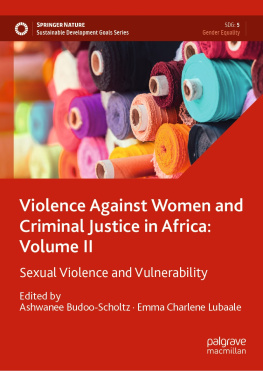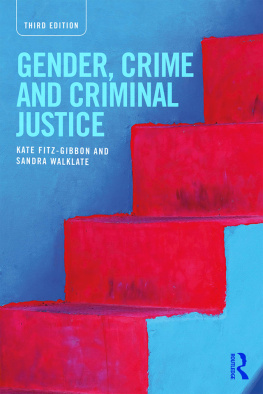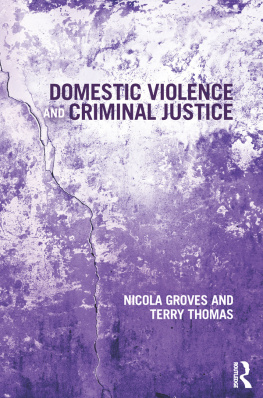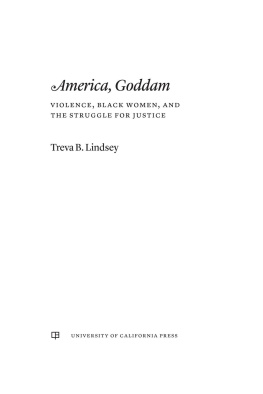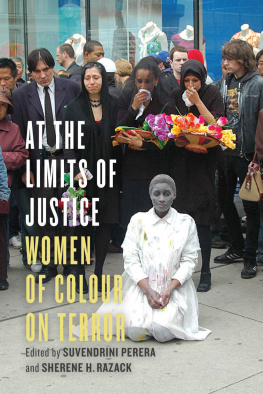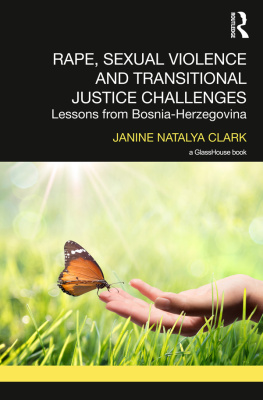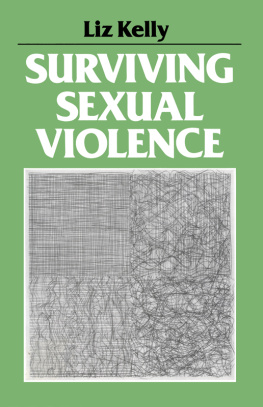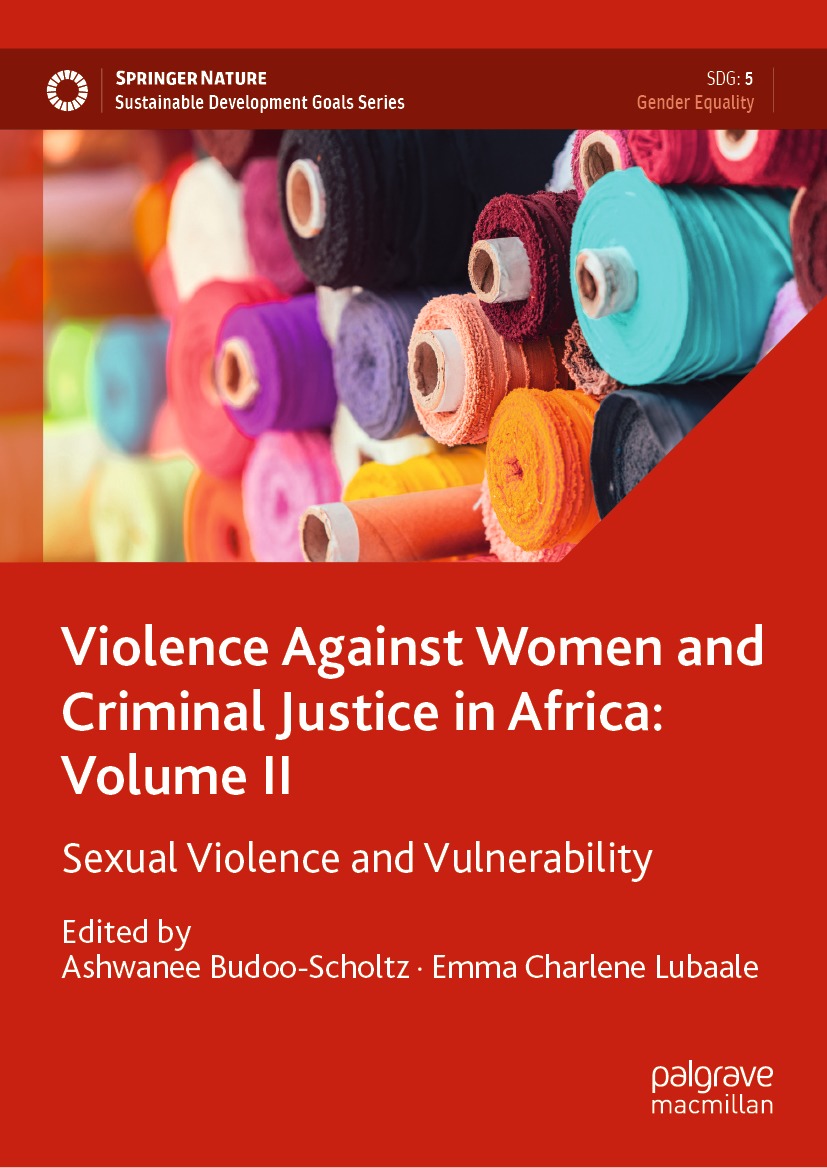Sustainable Development Goals Series
The Sustainable Development Goals Series is Springer Natures inaugural cross-imprint book series that addresses and supports the United Nations seventeen Sustainable Development Goals. The series fosters comprehensive research focused on these global targets and endeavours to address some of societys greatest grand challenges. The SDGs are inherently multidisciplinary, and they bring people working across different fields together and working towards a common goal. In this spirit, the Sustainable Development Goals series is the first at Springer Nature to publish books under both the Springer and Palgrave Macmillan imprints, bringing the strengths of our imprints together.
The Sustainable Development Goals Series is organized into eighteen subseries: one subseries based around each of the seventeen respective Sustainable Development Goals, and an eighteenth subseries, Connecting the Goals, which serves as a home for volumes addressing multiple goals or studying the SDGs as a whole. Each subseries is guided by an expert Subseries Advisor with years or decades of experience studying and addressing core components of their respective Goal.
The SDG Series has a remit as broad as the SDGs themselves, and contributions are welcome from scientists, academics, policymakers, and researchers working in fields related to any of the seventeen goals. If you are interested in contributing a monograph or curated volume to the series, please contact the Publishers: Zachary Romano [Springer; zachary.romano@springer.com] and Rachael Ballard [Palgrave Macmillan; rachael.ballard@palgrave.com].
More information about this series at http://www.palgrave.com/gp/series/15486
Editors
Ashwanee Budoo-Scholtz and Emma Charlene Lubaale
Violence Against Women and Criminal Justice in Africa: Volume II
Sexual Violence and Vulnerability
1st ed. 2022

Logo of the publisher
Editors
Ashwanee Budoo-Scholtz
Faculty of Law, Centre for Human Rights, University of Pretoria, Hatfield, Pretoria, South Africa
Emma Charlene Lubaale
Faculty of Law, Rhodes University, Grahamstown/Makhanda, South Africa
ISSN 2523-3084 e-ISSN 2523-3092
Sustainable Development Goals Series
ISBN 978-3-030-75952-0 e-ISBN 978-3-030-75953-7
https://doi.org/10.1007/978-3-030-75953-7
The Editor(s) (if applicable) and The Author(s), under exclusive license to Springer Nature Switzerland AG 2022
Color wheel and icons: From https://www.un.org/sustainabledevelopment/
, Copyright 2020 United Nations. Used with the permission of the United Nations.
The content of this publication has not been approved by the United Nations and does not reflect the views of the United Nations or its officials or Member States.
This work is subject to copyright. All rights are solely and exclusively licensed by the Publisher, whether the whole or part of the material is concerned, specifically the rights of translation, reprinting, reuse of illustrations, recitation, broadcasting, reproduction on microfilms or in any other physical way, and transmission or information storage and retrieval, electronic adaptation, computer software, or by similar or dissimilar methodology now known or hereafter developed.
The use of general descriptive names, registered names, trademarks, service marks, etc. in this publication does not imply, even in the absence of a specific statement, that such names are exempt from the relevant protective laws and regulations and therefore free for general use.
The publisher, the authors and the editors are safe to assume that the advice and information in this book are believed to be true and accurate at the date of publication. Neither the publisher nor the authors or the editors give a warranty, expressed or implied, with respect to the material contained herein or for any errors or omissions that may have been made. The publisher remains neutral with regard to jurisdictional claims in published maps and institutional affiliations.
Cover credit: Korndanai Vitthayanukarun/EyeEm
This Palgrave Macmillan imprint is published by the registered company Springer Nature Switzerland AG
The registered company address is: Gewerbestrasse 11, 6330 Cham, Switzerland
To,
Every woman survivor of violence who is denied justice.
Foreword
Violence against women and girls is perhaps one of the most critical issues dominating discussions on the agendas of states across the African continent. This scourge is neither new nor unique to the African continent. Over the past few decades, however, it has become an increasingly public issue across states in Africa. The pervasiveness of violence against women and girls has seen some states label the scourge a national crisis warranting immediate redress. It can be considered as one of the main challenges to the realisation of womens rights in Africa.
Criminal justice systems in Africa have a fundamental role to play in the eradication of violence against women. Disheartening, however, progress has been extremely slow as far as holding perpetrators of such violence to account is concerned. A significant number of cases, if at all reported, hardly make it through the criminal justice system. All considered, it is indisputable that violence against women and girls on the African continent has reached alarming levels. It is equally irrefutable that criminal justice responses are generally wanting. But equally undeniable is the fact that most African states have made multiple reforms to national laws. Many have also committed themselves to international obligations by way of ratification of treaties relevant to addressing the scourge of violence against women and girls. Even so, these strides have not generally translated into better criminal accountability across justice systems in Africa. The challenges and prospects of criminal justice for women and girls in Africa, despite these reforms, have hardly been the subject of scholarly discussion.
The two edited volumes of this publication fill in this scholarly gap. They echo the provisions of article 4 of the Protocol to the African Charter on Human and Peoples Rights (Maputo Protocol) that requires States parties to adopt and enforce laws, including punishing perpetrators, to ensure the elimination of violence against women. The contributions present a comprehensive and rigorous overview of the salient features and major developments in Africas criminal justice systems in as far as justice for women is concerned, while also focussing on vulnerable women. It offers a unique insight into the practical challenges of advancing justice for women in cases of violence in the different regions in Africa.
As someone who has been engaged on womens rights on the continent, including on the issue of violence against women, I believe that the publication of these two volumes is timely and that the recommendations therein, if implemented, can ensure more accountability for violence against women in the criminal justice systems of African countries.
Commissioner Lucy Asuagbor African Commission on Human and Peoples Rights, Outgoing Special Rapporteur on the Rights of Women in Africa

